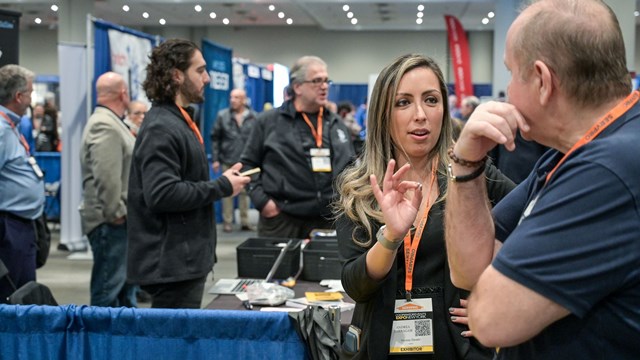
Sometimes insurance and the terms that accompany it can feel like a completely foreign language. It can be mystifying and overwhelming, whether for individual condo residents or the board members who oversee the community as a whole.
Knowing and understanding the key terms and concepts behind complete, well-designed insurance coverage can go a long way toward peace of mind and making sure that should the worst happen, homes and assets are protected.
Common Terms and Concepts
For condo owners, the most important terms to know and understand are “the homeowners’ HO-6 form, loss assessment coverage, rising water/flood, mold coverage and windstorm deductible,” says Paul M. Mack, CEO of Mack Mack & Waltz Insurance Group in Deerfield Beach.
The homeowners’ HO-6 form covers the contents and interior elements of a condo unit, versus the exterior of the building and its landscaping features, which are insured by the homeowners’ association through its master policy. The HO-6 policy covers personal belongings and the condo space itself from the traditional risks such as burglary and fire. Most mortgage companies in the state of Florida now require HO-6 insurance for any new condo purchase.
According to State Farm, loss assessment coverage is uniquely designed for condo owners, providing protection in the event that owners must pay a share of a significant assessment. For example, should an individual be seriously injured on common property and the courts award a judgment that is higher than the amount of liability coverage provided by the condo’s or association’s policy, then the loss assessment coverage will cover the unit owner’s share.
“Some standard condo policies provide coverage for assessments, but it may not be enough,” says Lynne McChristian, Florida issues representative for the Insurance Information Institute. “Get a copy of the association’s master policy so you know what its deductible amount is. Then, make sure you have a plan to pay for your share.”
Rising water and flood coverage is, of course, vitally important to Florida co-op and condo owners, providing protection in the event of extensive water damage from floods and other natural disasters. “Unit owners should consider a flood insurance policy for their contents,” says McChristian. “Some people think that if they live on a higher floor, they don’t have a flood risk. But if flood waters damage the bottom floors of a condo and make it uninhabitable, they may not be able to retrieve what was inside of their condo unit. Flood insurance would pay to replace those items.”
In addition to flood insurance, getting a good understanding of mold coverage may also pay off in the event of an unexpected mold issue within a home or unit. While some instances of mold may be covered in a standard policy, such as issues arising from a burst pipe, others may not, such as mold that has grown because of neglect. It is possible to purchase a rider to the homeowner’s insurance policy, providing for additional mold protection—something that may be worth the investment in high-humidity regions.
And finally, the windstorm deductible is different from most other deductibles, and can be tricky. In Florida and other states that have to deal with the ongoing risk of hurricanes and damaging winds, the deductibles are calculated as a percentage of the home’s insured value rather than as a flat rate, according to the Insurance Information Institute. Typically, that percentage value is between one and five percent.
Florida is one of 19 states and the District of Columbia that have hurricane deductibles, which are only triggered when certain storm criteria are met. It is important to speak to your insurance representative to best understand what those triggers are and how they will affect the policy.
“People tend to accumulate more as the years go by, so make sure you consider additional personal belongings acquired and any home improvements made,” says McChristian. “Being prepared is not a spectator sport. Everyone needs to know their risk and take an active role to be ready for whatever Mother Nature doles out.”
What Boards Should Know
For condo and homeowners association board members, there is even more to remember and thoroughly understand about insurance, above and beyond what is necessary for that individual’s own home or unit. According to Mack, “These terms include total insured value, co-insurance requirements, admitted vs. non-admitted carriers, fiduciary liability, umbrella and policy exclusions.”
Total insured value refers to the amount for which insurance is bought on a building, and the basis on which the insurance premium is calculated. The concept of co-insurance is important for condo communities, because it means the insurance company can shift part of the risk of loss back to the policyholder based on certain ratios of value. This is a complexity that should be explored and explained by the insurer and understood thoroughly, as the penalties associated with that shared risk can be significant in the event of a major event such as a fire or tropical storm.
'Admitted' versus 'non-admitted' carriers refers to insurance companies that have—or have not—been approved by a state’s insurance department. Approval by a state’s insurance regulator means that the company will be in compliance with state regulations, and adds an additional element of security for policyholders. One is not always better than the other, however, underscoring the need for a thorough vetting of a proposed insurer before signing an agreement.
Fiduciary liability coverage may or may not be part of directors and officers (or D&O) insurance, which protects board members from liabilities, associated with their leadership roles within the condo or association.
Umbrella coverage provides protection in the event that additional coverage is needed above and beyond the primary coverage should a very large claim consume that protection. It is that extra protection that can help provide added peace of mind for communities.
And finally, policy exclusions must be thoroughly reviewed and vetted by management and board leadership to fully understand what will and will not be covered in the event of a claim. When an entire co-op or condo community can be affected by an unknown or forgotten exclusion, the resulting financial strain can be significant—a bitter pill to swallow when it could have been avoided.
A Must-Have
One type of insurance coverage that a co-op or condo building absolutely should not be without is the previously mentioned D&O liability protection, says Mack. “The directors and officers serve as individuals and they must have adequate protection.” Meaning that if the association gets sued, the directors and officers of the board may be vulnerable to that litigation and its results without proper liability coverage.
Kevin Davis, owner of Kevin Davis Insurance Services based in Los Angeles, California, agrees. “Community association board members make decisions, and problems arise when unit owners, other board members, renters, contractors or management doesn’t like a decision the board made and files a claim,” he says.
“That’s what makes community associations claims unique,” Davis says. “They are usually emotionally based and not the result of a financial loss like any other type of insurance-related claim. Claims for breach of fiduciary duty, over the right to have a pet, or park wherever they want to park are all claims that are driven by emotions and usually, a judge or arbitrator is needed to determine who is right.”
According to Davis, there are two types of D&O insurance, as it is known. The bundled (packaged) D&O insurance coverage is added by an endorsement to the property and liability. It’s usually at a lower cost and coverage is very restrictive. “Stand-alone D&O insurance should be designed specifically for community associations,” Davis says. “A stand-alone policy must extend coverage to volunteers, committee members, community association managers and employees.”
Stopping Problems Before They Start
It is absolutely necessary for insurance to be made a priority in the management and oversight of a condo community or association. “Directors must make decisions in the best interest of the owners, not what they personally would do,” says Mack. Not looking at the broader picture “could result in an unexpected assessment for a loss that could have been covered by insurance, and I doubt members would see that decision as one in their best interests.”
To avoid issues and ensure that adequate coverage is in place, board members and managers should “find an agent they can trust to give them solid advice on coverage,” says Mack.
He adds that “Many boards think that buying insurance is like getting bids from other vendors like roofing and ground maintenance and it’s not. Here in southern Florida, there is a very limited market and the insurance companies only deal with one agent at a time. I suggest that boards should interview multiple agents and engage the one agent they feel will best represent them. Turning multiple agents out for bids will create chaos in the marketplace and” they will find that it’s “the fastest way to make them undesirable to underwriters that price the risks.”
“Right now, insurance is the number one budgeted item,” says Davis. “People try to save money and buy a cheaper policy. But it won’t have the coverage you need at the time of loss.” To avoid these issues, individuals and boards should be “making sure you don’t hire the wrong type of broker. Have a community association specialist.”
For individual unit owners, it is important to stay up to date on their coverage. “Have an annual conversation with your insurance provider to be certain you have what you need to fully recover financially from a storm,” says McChristian. “And do a home inventory to catalogue your personal possessions. This helps give you confidence that you are protected, and it provides a record for your insurer if you ever have to file a claim.”
Finding and maintaining proper coverage, both for individual unit owners and the board members and managers who make the big decisions for the whole community, is an imperative. Without that coverage, significant financial risk could be on the doorstep —risk that’s all too easy to find its way into reality, whether through natural disasters, fires or issues of liability. Better, as they say, to always be safe rather than sorry.
Elizabeth Lent is a freelance writer and a frequent contributor to The South Florida Cooperator.




2 Comments
Leave a Comment